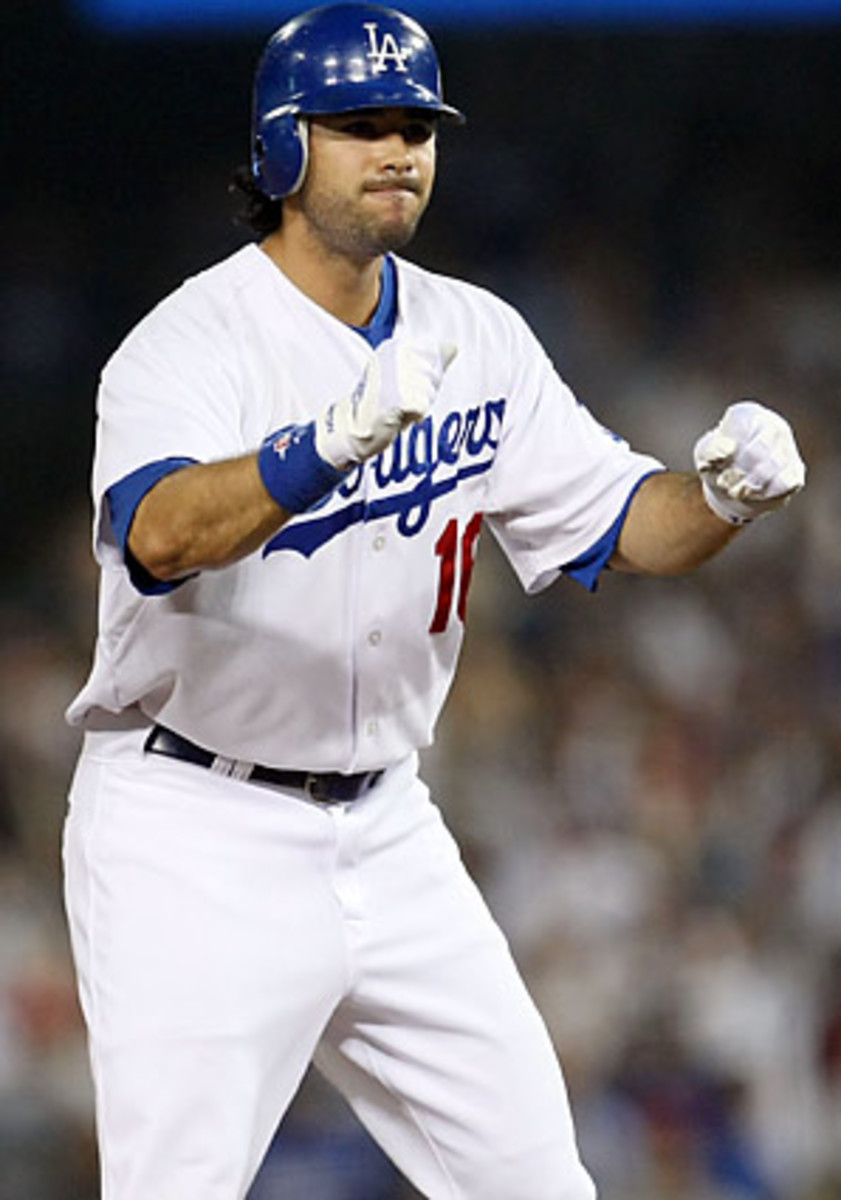McCourt divorce threatens Dodgers
LOS ANGELES -- Dodgers general manager Ned Colletti stood on the field before Game 1 of the National League Championship Series and said he did not anticipate his team would change the way it does business in light of the separation between owner Frank McCourt and his wife Jamie. He sounded a little like former Padres general manager Kevin Towers two years ago, oblivious to the freight train that was barreling toward him.
If the Dodgers do not think divorce can affect them, they need only look 120 miles to the south, to a franchise that was paralyzed by the split between owner John Moores and his wife Becky. In 2007, the Padres finished the regular season tied with the Rockies for first place in the National League West. That winter, Becky Moores filed for divorce. The next season, the Padres lost 99 games and finished last in the division.
A variety of factors contributed to their decline -- injuries, underperforming players, questionable personnel decisions -- but none more than divorce. California divorce law stipulates that all assets must be split in half, and since Major League Baseball requires that each team has a principal owner, John Moores decided to sell.
In order to make the franchise more appealing to recession-era buyers, he stripped it down until there was virtually nothing left, besides the new downtown ballpark. After '07, the Padres declined to re-sign starting outfielders Milton Bradley and Mike Cameron. After '08, they declined to re-sign closer Trevor Hoffman, traded shortstop Khalil Greene and tried to trade ace Jake Peavy. Finally, they sold to a group led by Jeff Moorad, in a cumbersome transaction that could take up to five years to complete.
With Moorad in charge but Moores still involved, the Padres finally traded Peavy, fielded offers for first baseman Adrian Gonzalez and at the end of this season fired Towers. Their payroll, nearly $70 million not long ago, is now less than $30 million. When the Padres trace back to the exact moment that their world came crashing down, it was not the day in late '07 that they lost a one-game playoff to the Rockies. It was the day in early '08 that Becky Moores filed for divorce and her attorney, Sandra Morris, told the San Diego Union-Tribune: "Everybody's got the best interest of the Padres in mind."
The Dodgers, currently the cream of the NL West, will be subjected to similar rhetoric in the months ahead. Their fans, who have already endured two ownership changes in the past 12 years, will not mourn if McCourt sells. After all, he is still viewed in many circles of Los Angeles as a Boston transplant who is not willing to make the sacrifices that Lakers owner Jerry Buss does. But if McCourt hangs around and operates the way Moores did -- if, for instance, he is unable to pay young stars Andre Ethier, Matt Kemp or James Loney as they begin to command higher salaries -- the atmosphere at Dodger Stadium will go from electric to unpleasant just as quickly as it did at Petco Park.
Manager Joe Torre said Thursday that the separation is "not going to affect anything that we do" and for now he is right. But his contract is up after next season and he said that he does not plan to return after it expires. Colletti said he has "made it known I'd like to stay" but his deal is up after this year. The McCourt regime, characterized by turnover, is entering another period of uncertainty. On the field, the Dodgers are well-positioned for the future, with a promising nucleus under the club's control. How they cultivate that nucleus, and what reinforcements they surround it with, is up to ownership.
No matter how the lawyers spin it, the NLCS did not start well for the Dodgers, in the owner's box or elsewhere. They lost Game 1 to the Phillies, and to keep from falling down 2-0, they are depending on starting pitcher Vicente Padilla, who they only signed in August after he was released by Texas. Padilla will start Game 2 at Dodger Stadium on Friday afternoon against Pedro Martinez, who made his debut on this field 17 years ago.
At this point, it is much too early to panic, either about the series or the separation. All the Dodgers can do is study what happened to their division rivals in the past two years and brace themselves. They are better equipped to handle this situation than the Padres, thanks to a bigger TV market, a broader fan base and a richer minor-league pipeline. But divorce has already changed baseball in Southern California once. Now it is threatening again.






